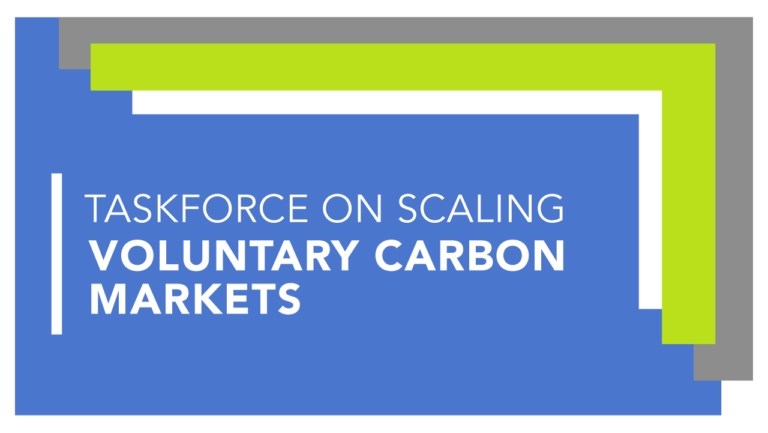The Government of Guyana and Architecture for REDD+ Transactions (ART) have announced the world’s first carbon credits eligible for use under the International Civil Aviation Organization’s Carbon Offsetting and Reduction Scheme for International Aviation (CORSIA). ART issued 7.14 million vintage 2021 carbon credits to Guyana under The REDD+ Environmental Excellence Standard (TREES), marking the first issuance of Paris Agreement correspondingly adjusted units reported to the UNFCCC. ART indicated that the credits will be eligible for the first phase of CORSIA (2024-2026), enabling airlines to use them towards their emission reduction targets under the program. Article 6 of the Paris Agreement. ART indicated that the TREES credits were issued to Guyana for reducing emissions from forest loss and degradation and maintaining one of the world’s most intact tropical forests as part of a jurisdictional REDD+ program. In addition, the Government of Guyana authorized the credits to be used for a range of compliance and voluntary purposes pursuant Article 6 of the Paris Agreement. As such, Guyana’s authorization for the use of the credits and its reporting of a corresponding adjustment to the UNFCCC enabled ART to label the credits as “CORSIA Eligible” on its public registry. Guyana is now the first country in the world to report a corresponding adjustment to the UNFCCC as a result of its authorization for the international transfer of emission reduction credits or internationally transferred mitigation outcomes under Article 6.2 of the Paris Agreement. CORSIA. CORSIA requires airlines from participating countries with annual emissions over 10,000 tonnes of CO2 to monitor and report their emissions. Airlines may use carbon credits to offset any remaining emissions that exceed a percentage of their 2019 baseline emissions. ART and the America Carbon Registry are currently the only crediting programs that have been approved by ICAO to supply credits for…
One of the leading voluntary carbon market standards, Verra, recently announced the launch of its “Project Tracker”, the first component of its digitalization initiative and the first functionality of the new Verra Project Hub. Verra also published an overview of the most recent updates to the Verra Registry. This bulletin briefly summarizes key information on the launch of the Project Tracker and important updates to the Verra Registry: Project Tracker and Project Hub Launch Verra’s Project Tracker provides stakeholders with increased information and visualization of project details including the status of each project in a bar diagram. This is intended to enable stakeholders to view project progress from initial listing to registration, validation, and verification. Verra indicated that the Project Tracker is linked to its customer relationship management platform, enabling automatic data synchronization. Verra noted that it intends to expand the Project Hub’s features to (i) facilitate the online submission of new projects for review, (ii) a digital assessment of a project’s non-permanence risk, and (iii) direct interaction with project auditors. Verra Registry Updates Announced updates to the Verra Registry include the following: New project status added. A new project status, “Pipeline Listing (Under Development) Approved”, has been added to the workflow for projects seeking registration in the Verified Carbon Standard (VCS) Program. ERR Calculation Spreadsheet. A new document type specific to emission reductions and removals (ERR), titled “ERR Calculation Spreadsheet,” has been added to the drop-down list of available project document types. Locking of Account Setup Fields.The fields in the “My Account Setup” module for all Verra Registry accounts are now locked for editing after Verra has approved the account. Locking of Project Setup Fields.Once a submitted project is no longer under the status of “New,” the project’s setup page will be locked for editing. This applies to all Verra projects in any…
The Voluntary Carbon Markets Integrity Initiative (VCMI) last week launched a provisional Claims Code of Practice (the Claims CoP) to guide “credible, voluntary use of carbon credits and associated claims.” VCMI anticipates that the Claims CoP will: provide clear guidance to companies and other non-state actors on when they can credibly make voluntary use of carbon credits as part of their net zero commitments; and ensure the credibility of claims made by companies and other private non-state actors regarding this use of carbon credits. Broadly, the Claims CoP includes four steps: Meet the Prerequisites. Companies must make a public commitment to achieve science-aligned long-term net zero emissions no later than 2050 and meet other pre-requisites before making voluntary use of carbon credits (and making a VCMI claim). Identify Claim(s) to Make. Companies can make “enterprise-wide” claims (VCMI Gold (net zero), VCMI Silver, VCMI Bronze (only available until 2030)) or “brand-, product-, and service-level” claims. Purchase High-Quality Credits. All credits used as the basis for credible claims must be high quality and meet basic criteria (based on work of CORSIA and the IC-VCM). Report Transparently on the Use of Carbon Credits. Companies must report full information in publicly available annual corporate sustainability or similar reports to demonstrate that prerequisites and claim requirements have been met. Detailed information is available in the draft Claims CoP. Several companies are “road testing” the Claims CoP through Fall 2022. The VCMI is also collecting public feedback on the draft until August 12, 2022. For further information or to discuss the contents of this bulletin, please contact Lisa DeMarco at lisa@resilientllp.com.
The recently launched Peoples Forests Partnership (the Partnership), aims to secure commitments to mobilize $20 billion per year by 2030 to Indigenous Peoples, traditional owners, and local communities (IPLCs) for community-based tropical forest conservation and restoration projects in the Global South. Facilitating members of the Partnership include Forest Trends, RECOFTC, Wildlife Works Carbon, Everland, and Green Collar. This Partnership could help reduce 2 billion tonnes of CO2 emissions from deforestation each year, protect 500 million hectares of threatened tropical forest, and support livelihoods and bioeconomy development for over 50 million people in forest communities. The Partnership was launched last year during the COP 26 conference in Glasgow, following an announcement of funding of $1.7B for IPLCs pledged by Norway, UK, US, Germany, and the Netherlands. The funding, to be provided through 2025, will support the capacity of IPLCs to govern themselves collectively, assist with mapping and registration work, back national land reform, and help resolve conflict over territories. The Partnership will support performance-based payments, such as carbon credits, and other climate funding mechanisms, including a financing facility specifically focused on strengthening territorial governance to be managed by Forest Trends. The Partnership is organized around two governing principles (i) forest communities are essential conservation partners; and (ii) community-based, values-driven climate and conservation finance projects have the potential to create a future with forests that aligns with forest community rights to their territories, economic self-determination, and cultural traditions. Facilitating members represent a collective portfolio that includes: over 250,000 Indigenous and other forest community members receiving direct market finance in recognition for protecting forests; over 2 million hectares of tropical forests with active climate finance projects; financing already in place for a portfolio of community-based forest conservation projects that will deploy $2 billion in private investment and stop 200 million tonnes of deforestation emissions…
The Taskforce on Scaling Voluntary Carbon Markets (TSVCM) today launched its Phase II Report (the Report), setting out an accelerated roadmap to a scaled, high-integrity voluntary market for the trading of carbon credits. The TSVCM is a private sector-led initiative working to scale an effective and efficient voluntary carbon market (VCM) to meet the goals of the Paris Agreement. The TSVCM was launched by Mark Carney, UN Special Envoy for Climate and Finance and former governor of the Bank of Canada and the Bank England and is chaired by Bill Winter, Group Chief Executive, Standard Chartered (read our earlier bulletins on the TSVCM here and here). Resilient LLP’s Lisa DeMarco is a member of the Legal principles and contracts Working Group of the TSVCM and Resilient LLP is a proud signatory of the TSVCM endorsement letter. This bulletin briefly summarizes the Report’s key points: Objectives and focus of the TSVCM. The Report indicates that the TSVCM’s primary focus is to raise public awareness of the climate and co-benefits of VCMs and engage with stakeholders to drive both demand and supply in these markets. Governance. The Report summarizes the Terms of Reference of the new umbrella governance body, which will have a mandate to (i) mitigate climate change and accelerate the transition to net zero; (ii) establish Core Carbon Principles (CCP) eligibility guidelines and additional attributes, an assessment framework for standard setters, and eligibility principles for suppliers and validation and verification bodies (VVBs); (iii) oversee standard setting organizations adherence to the CCPs; (iv) coordinate the work of, and manage interlinkages between, governance bodies; and (v) serve as a steward for the VCM. In addition, the TSVCM is seeking recommendations on the following five topics ahead of establishing the new umbrella body: • Modalities and procedures for the Board of Directors; • Transparency mechanism; • Grievance mechanism; • Transversal…



